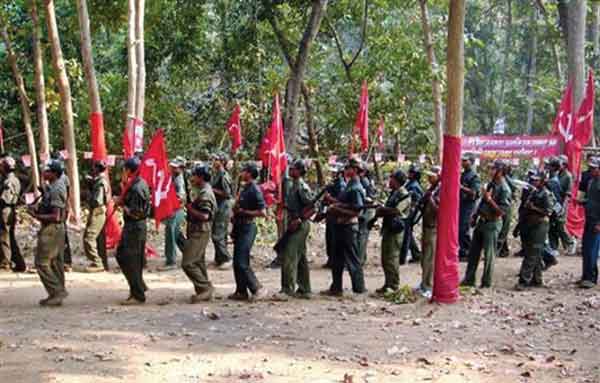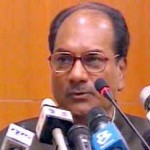The militant groups have tendency to show inclination to address the civil society, rather than the state – as an endeavour on their part to strike at the very thought process of the society. Since Maoists cannot represent themselves, with their leaders in hiding and no sympathizers ready to act as mediators, a section of intelligentsia and activists in form of front organisations, provide them with legitimacy they lack and allow them to participate in the lively debate that characterizes our society[1].
When well known intellectuals and public figures write and speak in support of some pro-people activities of Maoists, they actually play into the hands of Maoists.
Given the role of media and intellectuals in any political order, it primarily rest on the intelligentsia, supported by media to assist in peoples’ empowerment by giving voice to their aspirations and not let the anti-national ultras hijack a people centric agenda to swing public perception. The intelligentsia that includes academia, writers and journalists, enjoy combined benefits of a democracy to the optimum. By their disposition, they are partly immune to repressive mechanism of state till they do not go overboard, as happened in the recent arrest of GN Saibaba, who was charged with allegedly providing logistics, helping in recruitment and maintaining contact with Maoist leadership[2].
As remarked by Noam Chomsky, “the history of intellectuals is written by intellectuals, so not surprisingly, they are portrayed as defenders of rights and justice, upholding the highest values and confronting power with admirable courage and integrity”[3]. Therefore, the voice of intellectuals has tremendous credibility in a society. The ability to investigate issues with intellectual diligence and honesty to expose the falsity propagated by parties involved, should be the central aspect of an intellectual campaign. Notwithstanding the above, in many of the cases, the intellectual community as a whole is not exactly the harbinger of real social change. Intellectuals do tend to develop vested interests, owing to their prejudices and often – romanticism.
CPI (Maoist) has a well-organized United Front, comprising of Tactical United Front (TUF) and Strategic United Front (SUF). TUF comprises of organisations that are opposed to the state for one reason or another. For example, People’s Democratic Front of India (PDFI) was formed in July 2006, through efforts of a Maoist front organization known as Revolutionary Democratic Front (RDF) and on its roll are public personalities and activists like Medha Patkar, Nandita Haksar, P Vravara Rao etc. TUF helps Maoists put to effect, their consolidation and expansion in the society through over ground cadre expansion, carrying out indoctrination campaign especially in urban areas, poach partners for potential leaders and ideologues, serve as cover from state and reinforce the military activities, i.e. armed struggle.[4]
There is always an ill-concealed attempt to paint Maoism in terms of ‘desperate resistance of local indigenous people’.
The Maoists consider themselves to be a political organization, and hence the issues concerning people form part of their agenda. The canvas of issues they undertake is very wide with substantial resonance in society. They find much desired legitimacy, with a section of intelligentsia and middle class associated with TUF in some manner, giving them support. They exploit every available forum to voice the concerns of people and turn it to their advantage. In all this, the ultimate goal remains armed overthrow of the state and therefore it is important to distinguish between hardcore Maoist sympathisers amongst the intelligentsia and those who do not subscribe to Maoist ideology of ‘armed insurrection’. When well known intellectuals and public figures write and speak in support of some pro-people activities of Maoists, they actually play into the hands of Maoists. By influencing impressionable minds of the young, they further the Maoist agenda.[5]
Many a times, intellectual campaigns have degenerated into propaganda when principles of value and truth are disregarded. One such case has been initiating and executing political petitions asking people to support a cause. This is particularly serious when signatures are sought from distinguished persons who are not likely to know the background well enough to give an informed consent. A case in point has been Mahasweta Devi’s declared dissociation with Chhatradhar Mahto, once his links with Maoists came to fore[6]- the links to which she was not privy to, in the beginning when the endorsement was done. An online forum by the name ‘Sanhati’, went on to paint the disturbances in LWE affected areas as war between the State & the Adivasis – and successfully obtained endorsements without even hinting at the role played by armed Maoists –colouring the Adivasi resistance as Maoist and all Maoists as Adivasis[7].
In such statements, the picture that is painted remains totally silent on role played by CPI (Maoist) and their armed rebellion. In such petitions Maoists are mentioned passingly, to plant the idea that the Government uses ‘shadow of insurgency’ as an excuse to hunt down the marginalized indigenous people. There is always an ill-concealed attempt to paint Maoism in terms of ‘desperate resistance of local indigenous people’. What is not so transparent from these statements is the condition that has brought about this state of affairs; with armed Maoism at the root[8].
…with respect to the recent media leak of IB Report vis-à-vis foreign funded NGOs, activist under allegation, SP Uday kumar has voiced his resistance and plans on filing a writ petition against the state.
Adivasis who become Maoists do not do so because they agree with their politics, their ideology or their programme. They do so because ‘Maoism’ performs some functions in a very immediate sense in their lives. And in the clash between the State and Maoists, these unfortunate people are sandwiched[9]. What needs to be highlighted here and in similar situations is that it is not Maoism that is the real issue. It is the injustice, which lies at the root of this bane. The fact is that Maoists have lapped up the tribal agenda for their ulterior motives. The intellectual supporters, perhaps inadvertently, act in conjunction with Maoists to suitably mould perceptions of the citizenry.
While the Maoists have built their campaign around perceived or actual neglect and alienation of the tribals, the state policies have remained inadequate towards creating a favourable perception, in the society in general and amongst the aggrieved population in particular[10]. One of the most neglected areas of the Government’s counter Maoist approach has been the lack of adequate emphasis on psychological operations. Towards this, the state has to pitch inclined intellectuals against Maoist ideology to counter propaganda by Maoist intelligentsia.
Cultivating, moulding and nurturing favourable opinion shall play a major role and its percolation ought to be inclusive, down to local levels and not merely confine to ‘arm chair musings’ and ‘prime time debates’. These measures should provide a background to the Government’s two pronged approach of security & development to address the prevalent ‘trust deficit’ amongst the population in LWE affected areas. Also, the stance which state supporting intelligentsia takes, has to be based on truth, flowing from a genuine approach by the state to address the aspirations of aggrieved populace. Lest if not, it shall end as a counter-productive exercise, vulnerable to be exploited by Maoists and the section of intelligentsia backing them.
The state, to counter Maoists intellectual propaganda, has often attempted to enforce itself on Maoist disposed intelligentsia. Any such move to scuttle the voices, in form of a law & order measure, is laced with dangers of providing fuel to the opponents of state’s anti-Maoist stand. In past, front organisations have shown intense resistance to Government’s attempt of imposing acts like Unlawful Activities Prevention Act, 1967 or POTA, to reign in the Maoist sympathisers in intelligentsia. Any overbearingness of this sort is highly non-workable in present times of media proliferation. For example, with respect to the recent media leak of IB Report vis-à-vis foreign funded NGOs, activist under allegation, SP Uday kumar has voiced his resistance and plans on filing a writ petition against the state[11].
An awareness campaign at the behest of Government needs to expose the fallacy of Maoists philosophy, wherein it has to be elaborated that the Maoist forms of resistance is inconsistent with the broader democratic resistances which continuously metamorphose and strive for genuine welfare and empowerment of downtrodden. Given the present state of the nation’s evolving economy complemented by democratic polity and society; power is certainly not going to flow out of the barrel of a gun.
Reference:
[1]Devji, Faisal, “Why Maoists Want Arundhati Roy & Likes”, The Guardian, 09 March, 2012.
[2]Ramanna, PV, CPI (Maoist) and Urban Movement – idsa.in/idsa_comments/CPI_Maoist_and_Urban_Movement_pvramanna.
[3] Chomsky, The Great Soul of Power, 2010.
[4] Rammana, PV, Growth of CPI (Maoist), Naxal Violence, the Threat Within, (ed) Kanwal Gurmeet, Katoch, Dhruv, pp 108 & 09.
[5] Ibid.
[6]PTI, Business Standard, October, 7, 2009, “I am unaware whether Chhatradhar is a Maoist. Once, he came to my house with a group of women and crew of a TV channel. When I was told that the women were Maoists, I drove away all of them, including Chhatradhar”, said Mahasweta Devi.
[7] http:sanhati.com/excerpted/1824.
[8]Mukherji, Nirmalangshu, Role of Intellectuals, Maoists in India, The Maoists in India, Tribals under Siege, 2013, pp 87.
[9] Nigam, Aditya, The Rumour of Maoism, Seminar, October, 2010.
[10] Routray, Bibhu, Prasad, ‘India’s Response to Maoist Growth: Tactics & Strategies’, pp 184, Naxal Violence, the Threat Within, (ed) Kanwal Gurmeet, Katoch, Dhruv.
[11] Interview with SP Udaykumar, coordinator, People’s movements Against Nuclear Energy, “Our Struggle Was Funded by People”, Frontline, July 11, 2014.
– See more at: http://www.claws.in/1229/managing-perceptions-for-maoists-shashank-ranjan.html#sthash.jZW2qefK.dpuf






My brother suggested I might like this web site.
He was entirely right. This post truly made my day. You can not imagine just how much time I had spent for this info!
Thanks!
JAI HIND JAI BHARAT